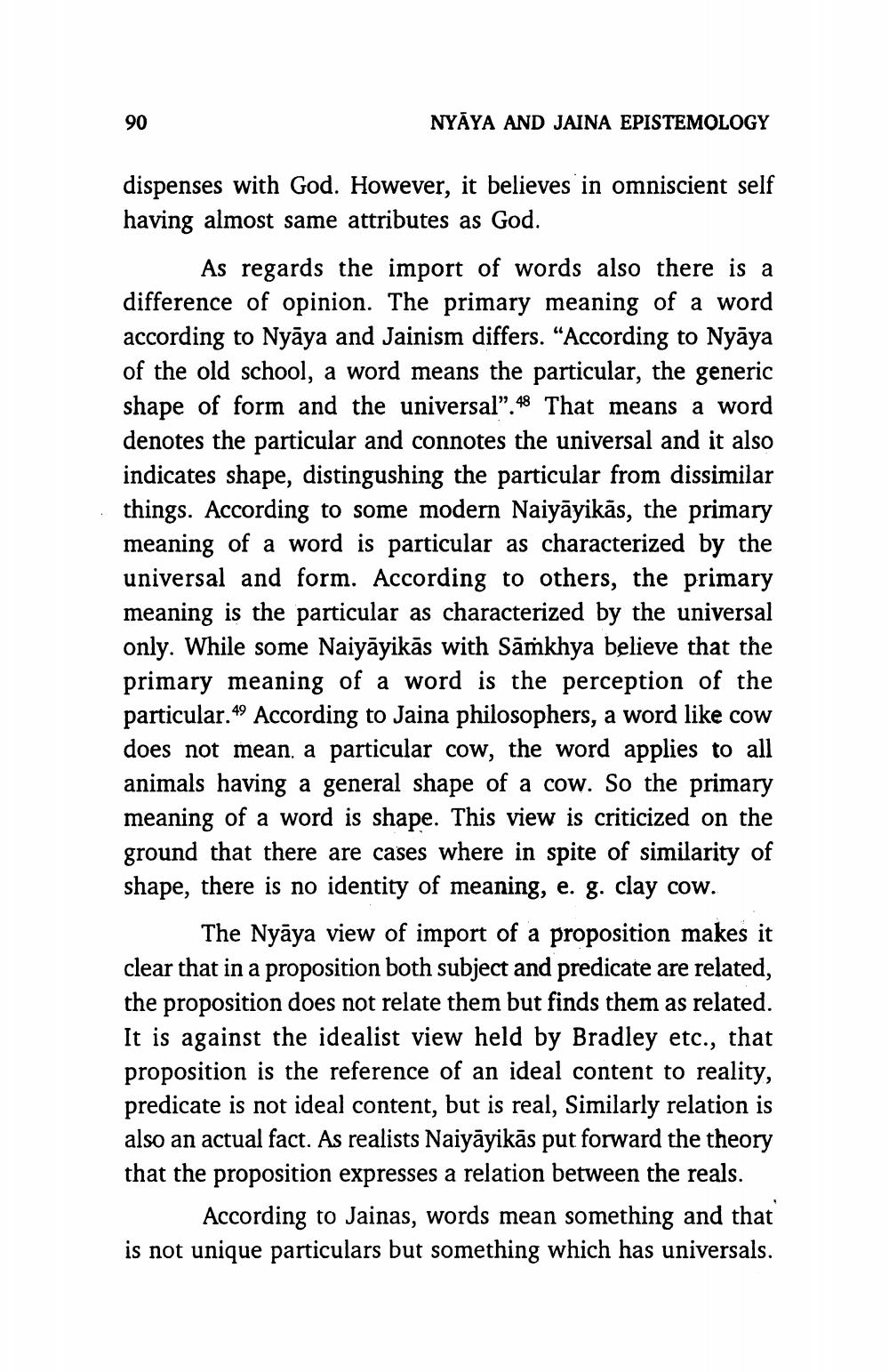________________
NYAYA AND JAINA EPISTEMOLOGY
dispenses with God. However, it believes in omniscient self having almost same attributes as God.
As regards the import of words also there is a difference of opinion. The primary meaning of a word according to Nyāya and Jainism differs. “According to Nyāya of the old school, a word means the particular, the generic shape of form and the universal”.48 That means a word denotes the particular and connotes the universal and it also indicates shape, distingushing the particular from dissimilar things. According to some modern Naiyāyikās, the primary meaning of a word is particular as characterized by the universal and form. According to others, the primary meaning is the particular as characterized by the universal only. While some Naiyāyikās with Sāṁkhya believe that the primary meaning of a word is the perception of the particular.49 According to Jaina philosophers, a word like cow does not mean, a particular cow, the word applies to all animals having a general shape of a cow. So the primary meaning of a word is shape. This view is criticized on the ground that there are cases where in spite of similarity of shape, there is no identity of meaning, e. g. clay cow.
The Nyāya view of import of a proposition makes it clear that in a proposition both subject and predicate are related, the proposition does not relate them but finds them as related. It is against the idealist view held by Bradley etc., that proposition is the reference of an ideal content to reality, predicate is not ideal content, but is real, Similarly relation is also an actual fact. As realists Naiyāyikās put forward the theory that the proposition expresses a relation between the reals.
According to Jainas, words mean something and that is not unique particulars but something which has universals.




